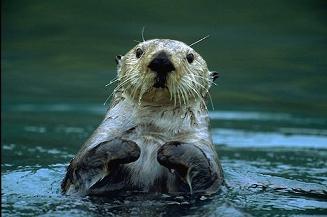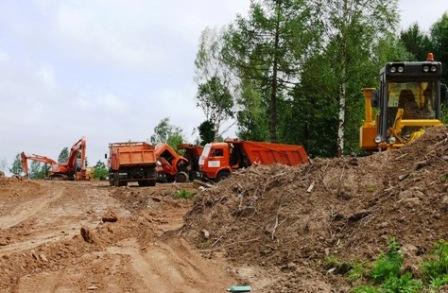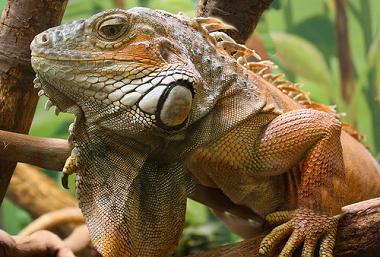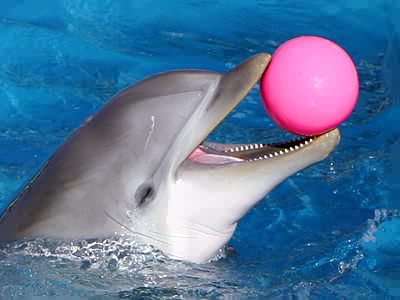Sea otter is a specie of a mammal that lives on the coasts of northern and eastern Pacific Ocean. They belong to the weasel family, and are able to live on the land, but most of the time, they spend their lives in water.
Scientists recently discovered that sea otters have a great abilities that can help our environment. Because they feed on sea urchins, it keeps the kelp population balanced. It helps reduce the amount of CO2 in our atmosphere, especially if there is starting to be too much CO2, emitted by industrial areas, exhaust fumes and greenhouse gases. That means sea otters are able to prevent from global warming!
Posts Tagged ‘berg’
Eco News #17 – Sea otters may prevent from global warming
September 17th, 2012Eco News #16 – Khimki forest deforestation issue
September 12th, 2012Hello Greenzoners. This Eco News is thank to eyef, who brought us this information. 🙂
Khimki is a forest located near the city of Moscow, in Russia. Its size is 10 square kilometers, the trees that grow in this forest are rare species, and very old – many of them have several hundred years and are listed in Moscow’s Red Book – the document that contains the list of endangered species of plants and animals. The forest has a positive effect on the life of city’s inhabitants – it reduces the amount of the air pollution, by absorbing car exhaust fumes, and holds the noise from Sheremetyevo Airport. Khimki has been for many years under the protection of the state, and construction in that area was prohibited.
Eco News #15 – deforestation reduces the rain in a dangerous scale
September 9th, 2012As it was confirmed by scientists, deforestation reduces the amount of rain and can be a cause of drought – as says the research ran by team from the University of Leeds and the NERC Centre for Ecology & Hydrology.

According to their observations, deforestation in a massive scale such as in Amazon region or Congo may reduce the amount of rain in such a degree, that it could lead to catastrophic consequences. Provided that the deforestation scale will be the same until 2050, there will be only one-fifth (21% to be exact) of rain during dry seasons. It may have harmful effect on places inhabited by humans, in areas that strongly depend on the rainfall. (more…)
Eco News #14 – Tropical species adapting to Global Warming
August 19th, 2012Recently we spoke of fish adapting to changing climate, as well as coral reefs. Now about tropical species.
Those species, that used to live in warm, humid areas, like lizards or insects are ectotherms – animals that require heat from environment to prosper correctly. That makes them dependent of temperature, which means – changing temperature would cause harm to them.
Eco News #12 – The Cano Cristales
August 6th, 2012Hi Greenzoners! Remember our last riddle? About what was it in that picture?
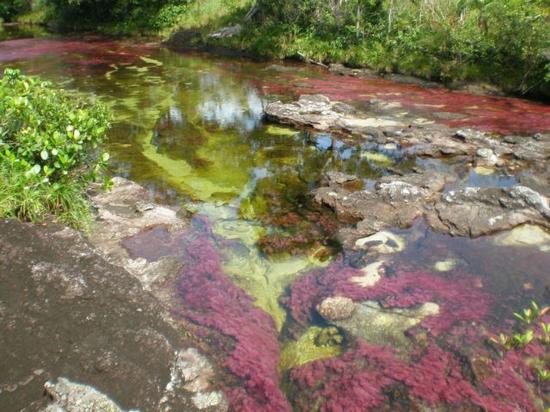
Well, the answer is simple – it’s a river in Colombia, called The Cano Cristales, or commonly known as Rainbow River. It is located in a northern part of Colombia, in “Sierra de la Macarena” and is over 100 kilometers long.
It’s so colorful because of multi-color moss that grows on the bottom of the river and blooms accordingly to the changes of water level. Also, this beautiful performance is visible at certain season of the year. 🙂
More photos at http://planetoddity.com/the-cano-cristales-river-of-rainbow-in-colombia/
We’d love to go there. How about you?
Eco News #11 – Fish adapting to changing conditions
July 26th, 2012Recently we spoke about climate changes affecting life in coral reefs. This time, however, scientists agreed that fish have abilities to adapt to changing conditions.
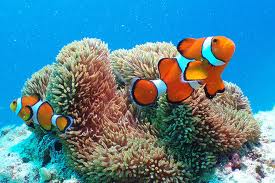
(more…)
Eco News #10 – African Painted Dog
July 23rd, 2012Hello Greenzoners! Have you ever heard about african Painted Dog? 🙂
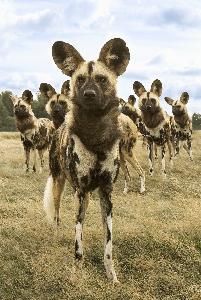
This race of a dog lives in Africa and it was claimed to be an endangered species in over 2/3 of countries it lives in. (more…)
According to recently published articles in scientific press, overall climate change caused coral reef to collapse during last few thousands of years. Because of naturally shifting climate zones, the growth of reef in the eastern Pacific ceased for around 2,500 years. But because of the increasing amount of greenhouse gases in the atmosphere, this climatic change gets faster, which causes reefs to decay faster than usual.

This is the result of research done using small aluminium pipes stuck into dead coral reef and then by examining the geological history of the reef.
Now the reefs at coasts of Panama are slowly disappearing. Eologists say, that climate changing often destroys reefs, but since industrial waste got into atmosphere and the ocean, this collapse will come faster and will be more devastative, without natural balance.
Remember that coral reefs are home of many different species of underwater life.
Even though they are being damaged, ecologists stay optimistic. “Coral reefs used to prove that they are resilient and can endure many different environmental ups and downs“, they say.
Found on http://www.sciencedaily.com/releases/2012/07/120705181241.htm
Anyone volunteer to help saving the reef? 😉
Eco News #8 – dolphin shows in South Korea banned
June 27th, 2012Even if we find dolphins performing amazing acrobatics, South Korean government decided to ban catching dolphins in purpose of using them in shows.
Hello Greenzoners! Have our wondered about re-using old packings? 😉
(more…)
 Greenzoner.com
Greenzoner.com